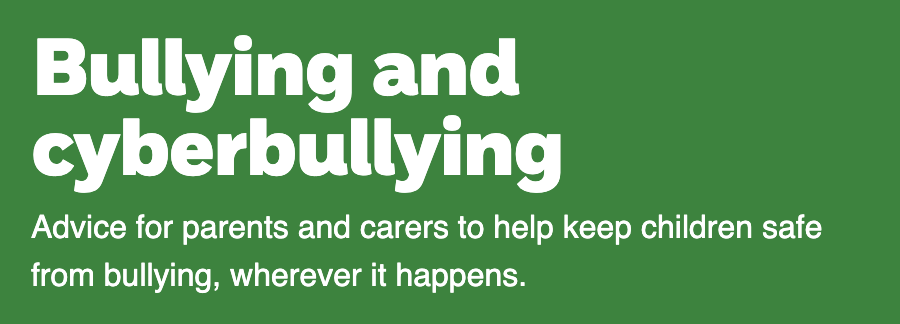Anti-Bullying
At Steyning C of E Primary School, we aim to provide a safe, caring and friendly environment for all our pupils to allow them to learn effectively, improve their life chances and help them maximise their potential.
The School recognises that students will learn best in a safe and calm community that is free from disruption and in which education is the primary focus. Staff, volunteers, students and parents have a responsibility to report bullying as soon as possible. They also have a responsibility to implement the preventative strategies outlined in the policy.
We would expect pupils to feel safe in school, including an understanding of the issues relating to safety, such as bullying and child on child abuse. We also want them to feel confident to seek support from school should they feel unsafe.
Definition of bullying
‘Behaviour by an individual or group usually repeated over time, that intentionally hurts another individual or group either physically or emotionally’. Safe to Learn: embedding anti bullying work in schools (2007).
How does bullying differ from teasing/falling out with friends or other types of aggressive behaviour?
- There is a deliberate intention to hurt or humiliate.
- There is a power imbalance that makes it hard for the victim to defend themselves.
- It is usually persistent.
Occasionally an incident may be deemed to be bullying even if the behaviour has not been repeated or persistent – if it fulfils all other descriptions of bullying. This possibility should be considered, particularly in cases of sexual, sexist, racist or homophobic bullying and when children with disabilities are involved. If the victim might be in danger, then intervention is urgently required.
What does bullying look like?
Bullying can include:
- Name calling
- Taunting
- Mocking
- Making offensive comments
- Physical assault
- Taking or damaging belongings
- Cyberbullying - inappropriate text messaging and e-mailing; sending offensive or degrading images by phone or via the Internet
- Producing offensive graffiti
- Gossiping and spreading hurtful and untruthful rumours
- Excluding people from groups.
Although bullying can occur between individuals it can often take place in the presence (virtually or physically) of others who become the ‘bystanders’ or ‘accessories’. There is no hierarchy of bullying – all forms should be taken equally seriously and dealt with appropriately.
Bullying can take place between:
- Young people
- Young people and staff
- Between staff
- Individuals or groups
Our school strategies for preventing bullying
Preventing bullying behaviours can be possible through a range of proactive measures. We look for every opportunity to prevent bullying-type behaviours from happening. Some of the actions the school takes to prevent bullying include:
- The issue of bullying is included in the curriculum and classwork, e.g. Drama, English.
- Bullying is addressed through the PSHE programme and is aligned with the standards of the PSHE Association.
- Anti-bullying week is dedicated to raising awareness of bullying and reminding staff and pupils of their responsibilities to report it.
- Pupils are not permitted to use their mobile phones around the school. This is partly to prevent cyber-bullying.
- Staff have been trained to be vigilant and to watch and listen for any bullying type behaviours, no matter how small.
- Seating plans in lessons are carefully considered using any relevant information about the relationships between specific pupils.
- The School Wellbeing Committee regularly considers new ways to prevent bullying.
- External speakers raise awareness of issues such as racism and homophobia.
- Working with the wider community such as the police/children’s services where bullying is particularly serious or persistent to send a strong message that bullying is unacceptable within our school.
We recognises that specific groups of pupils are particularly vulnerable to bullying.
For more information please see our anti-bullying policy below.
For support if your child is being bullied or if your child is bullying others please come and talk to the Safeguarding Leads in the school, Nicky Parkin or Sue Harrison or use the link below.

